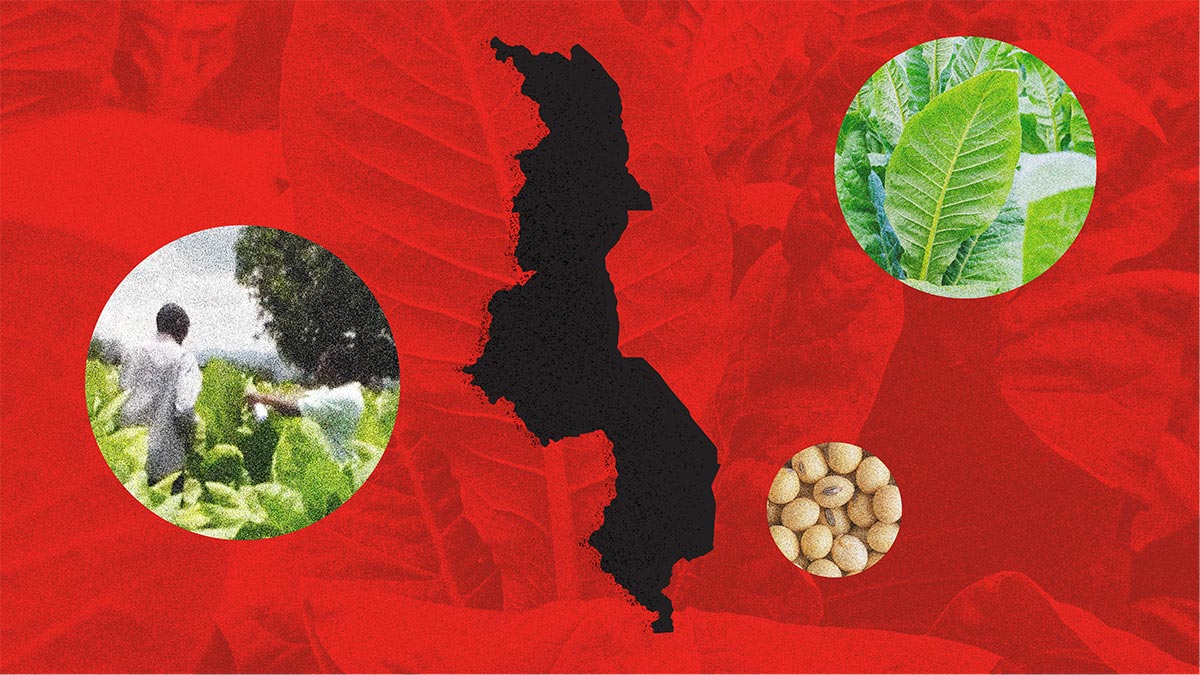- Resources
- News
-
-
Get Email Updates
Sign up for STOP's emails and never miss an update on our latest work and the tobacco industry's activity.
-
Get Funding
Ready to tackle industry interference? You could be eligible for a grant.
-
Share a Tip
Do you have information on tobacco industry misconduct in your country? Let us know.
-
Get Email Updates
Business of Tobacco
January 28, 2022

Despite our best intentions, New Year’s resolutions are hard to keep. Especially when they involve quitting a highly addictive product. And even more so when that product was designed to keep people addicted.
This is the challenge that many smokers face every January. Smokers around the world want to quit. In some countries, most smokers want to leave cigarettes behind: More than 70% of current smokers in Argentina, Malaysia, Mexico and Uruguay want to quit smoking, according to one report. Despite their motivation, quitting cigarettes is difficult. But quitting can be even harder for people who smoke flavored and menthol cigarettes.
It’s not a question of willpower. Research has shown that flavored tobacco is harder to quit and that menthol in particular perpetuates addiction. Yet, despite tobacco companies’ claims to want to move away from cigarettes, they continue to fight flavor and menthol bans around the world.
Flavored cigarettes: Easy to start, hard to quit
Flavored cigarettes are cigarettes that have had flavor added to them. Sometimes flavor additives are applied during manufacturing, but flavors can also be added in the form of flavor cards, flavored filter tips, flavored paper or flavor capsules. Researchers have identified many flavors applied to tobacco, ranging from fruit flavors, like strawberry, mango and coconut, to spice flavors, including clove and cinnamon. The most common flavor, though, is menthol, which comprises around 10% of the entire global cigarette market.
Flavored cigarettes make smoking more appealing and easier to start, especially for young people—Big Tobacco’s ideal market. The added flavors help cover up the taste of tobacco and the cooling sensation associated with menthol in particular can reduce the harshness of smoking. Tobacco companies have even manipulated the levels of menthol in menthol cigarettes to make them more appealing to young people.

Research in Canada found that a menthol ban led to more quit attempts and more successful quitting.
For the tobacco industry, flavors and menthols are the ultimate win-win when it comes to hooking a new generation: While they make starting smoking easier and more appealing, research shows they also can lead to a higher likelihood of habitual smoking. And starting to smoke with menthols can make it harder to stop smoking. Studies have suggested that youth menthol smokers report greater levels of nicotine dependence and that menthol smokers may have a more difficult time quitting.
Tobacco companies have benefitted from this youth appeal to flavors. Adding menthol cigarettes to the Singaporean market appeared to be a key part of Philip Morris’ strategy to compete with R.J. Reynolds for new smokers in the country.
Perpetuating racial and gender health disparities
In addition to young people, tobacco companies have exploited Black people across the United States with predatory marketing of menthol products.
As a result of racist, targeted advertising and easier, cheaper access to menthols in predominantly Black communities, Black people now make up the majority of menthol smokers in the U.S. One study reported that about 72% of Black adult smokers and 88% of Black youth smokers smoke menthols, compared with 22% of white adult smokers and 26% of white youth smokers.
Black communities weren’t the only ones targeted by Big Tobacco. Flavors were also heavily marketed to Hispanic communities in the U.S. For example, ads for menthol cigarettes were more common in the Spanish-language version of People magazine than the English-language version, and 60% of the cigarette ads in the Spanish-language version were for menthol brands.
Flavors are also used as an industry marketing tactic across the ASEAN region to target women and girls. Cigarettes sold in Cambodia, Indonesia, Malaysia, the Philippines, Singapore and Vietnam have capsule filters that release menthol or other flavors. And the colors on packaging that indicate flavors can give the false impression of a lower-tar or milder cigarette.
Big Tobacco wants to keep flavors and menthols on the market
Recognizing the role flavored tobacco plays in the tobacco epidemic, countries are taking action. Researchers estimated that as of 2021, about 40 countries had active or pending polices around flavors, consistently prohibiting fruit, vanilla and spice-related flavors. Menthol, however, has proven to be more of a challenge due to the tobacco industry’s continued interference in efforts to regulate these products.
Research in Canada found that a menthol ban led to more quit attempts and more successful quitting. The U.S. state of Massachusetts has already banned menthol cigarettes, which led to significant declines not just in menthol cigarettes sales but also sales of cigarettes altogether.
This may be why tobacco companies are fighting to keep them on the market. Tobacco companies lobby policymakers, argue that menthol bans are unconstitutional, threaten to withdraw business operations from the country in question and use third parties to interfere in regulation. (Read specific examples.)
Governments must enact comprehensive flavor bans to protect health
The World Health Organization Framework Convention on Tobacco Control, a global health treaty designed to reduce tobacco use, recommends the regulation of flavors by prohibiting or restricting them in tobacco products. To make sure the bans are comprehensive, they need to ban all forms of flavors and flavor additives.
Where regulation appears inevitable, the tobacco industry lobbies for bans on “characterizing flavors,” versus bans on additives. Characterizing flavors are defined as “a clearly noticeable smell or taste other than one of tobacco, resulting from an additive or a combination of additives … which is noticeable before or during the consumption of the tobacco product.” In other words, a tobacco company could still add menthol, but at such an amount that it could claim a smoker wouldn’t be able to notice it. This categorization is more subjective and difficult for governments to regulate—and easier for the industry to exploit as has happened in the European Union and the U.K. The U.S. may face similar struggles in the future, as the Food and Drug Administration recently announced its intent to move forward with banning menthol as a characterizing flavor.
The flavor battle extends to Big Tobacco’s electronic products, as well. E-cigarettes, for example, are offered in flavors like bubble gum, cotton candy and a variety of fruit flavors, which are often prohibited for use in regular cigarettes because of concerns that such flavors may appeal to children and young people. The industry and its allies typically oppose flavor bans among these products, too.
These bans, ultimately, would protect targeted groups of people from the predatory tactics of Big Tobacco and spare countless individuals from a lifetime of addiction and poor health consequences.



